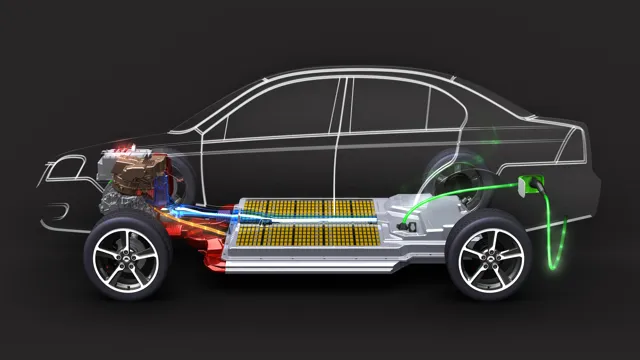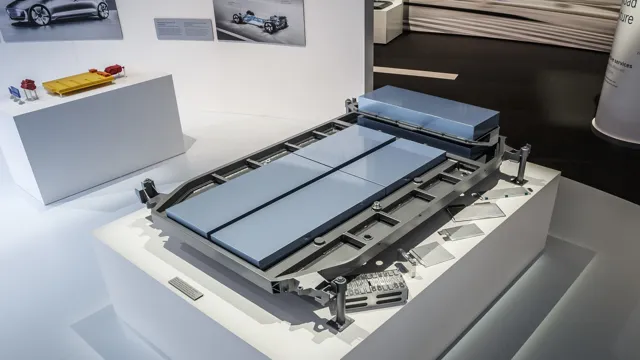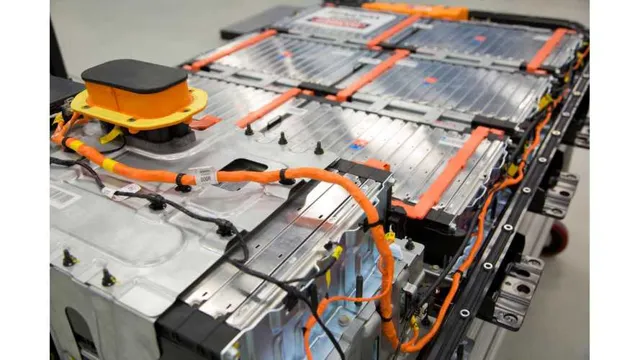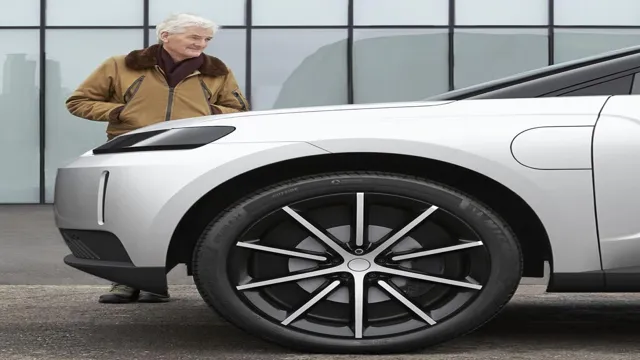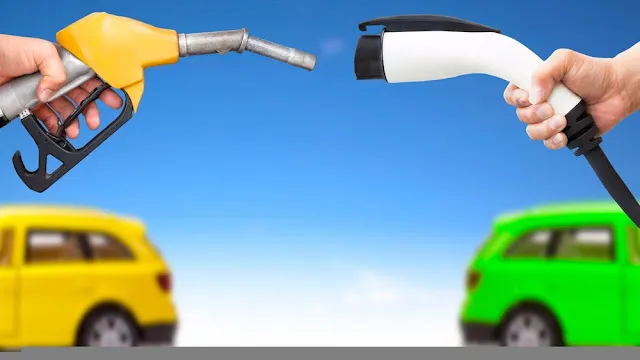Powering Up: An In-Depth Comparison of Electric Car Batteries and Phone Batteries
Electric car batteries and phone batteries may seem like they have nothing in common at first glance. After all, one is used to power a vehicle while the other is used to keep our smart devices running. But both batteries have become essential parts of our daily lives.
With electric cars becoming more popular and phones being used excessively, it’s important to compare the two. How do they differ in terms of size, capacity, charging time, and lifespan? In this blog, we’ll explore the differences between electric car batteries and phone batteries, and why it’s important to know them.
Capacity and Energy Density
When it comes to comparing electric car batteries and phone batteries, the crucial factors are capacity and energy density. Electric car batteries, as they need to power much larger vehicles, have much higher capacity than phone batteries. This means they can store and deliver more energy, enabling cars to travel much farther distances before requiring a recharge.
In terms of energy density, electric car batteries are also more efficient at storing and delivering energy than phone batteries. This is due to the use of cutting-edge lithium-ion technology, which allows for a higher concentration of energy in a smaller, lighter package. Ultimately, while both electric car batteries and phone batteries rely on the same underlying principles, the former is designed to deliver high levels of power and endurance in a much larger and more demanding context.
Electric car batteries have a much higher capacity than phone batteries.
Electric car batteries have a significantly higher capacity than phone batteries, which is essential for powering a larger and more complex device. Capacity refers to the amount of electrical energy that a battery can store, and is measured in ampere-hours (Ah). While the most powerful phone batteries currently available have a capacity of around 4 Ah, electric car batteries can have a capacity of several hundred Ah.
This difference in capacity is due to the fact that electric cars require much more energy to operate, and there simply isn’t room inside a phone for a battery that large. Additionally, electric car batteries typically have a higher energy density than phone batteries, which means that they can store more energy per unit of volume and weight. This is necessary to keep the battery size manageable while still providing enough power to run an electric car for hundreds of miles.
In summary, electric car batteries have a much higher capacity and energy density than phone batteries, which is necessary for powering a larger and more complex device like an electric car.
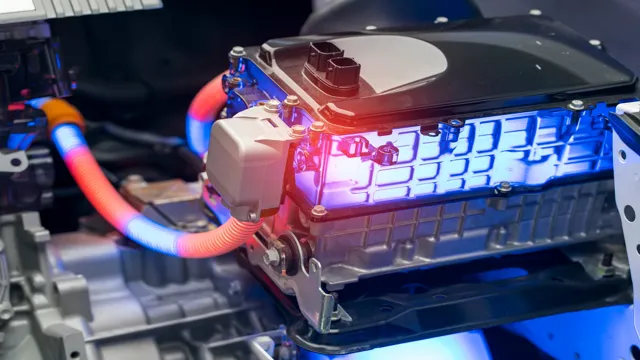
Electric car batteries also have a much higher energy density.
Electric car batteries have revolutionized the world of transportation in many ways, one of the most significant being their much higher energy density compared to traditional combustion engines. This means that electric car batteries can store much more energy in a smaller space, allowing them to travel further and faster than fossil-fuel powered vehicles. This higher energy density is due to the use of newer battery technologies, such as lithium-ion batteries, that allow for more efficient use of space and a higher capacity for energy storage.
In addition, electric car batteries are also much lighter than traditional vehicle batteries, allowing for quicker acceleration and faster charging times. The increased energy density of these batteries is not only important for electric vehicles, but also has the potential to revolutionize other sectors, such as home energy storage and renewable energy. Overall, it is clear that electric car batteries are a major step forward in the world of energy storage and transportation, offering improved performance, efficiency, and sustainability.
Charging Time
Have you ever wondered why it takes so much longer to charge an electric car battery compared to a phone battery? The answer lies in the size of the battery. While a phone battery typically holds anywhere from 1500 to 4000 milliampere-hours (mAh), an electric car battery can hold anywhere from 40 to 100 kilowatt-hours (kWh). That’s a huge difference! Due to the larger capacity, electric car batteries require a lot more energy to charge.
Even with fast-charging stations, it can take anywhere from 30 minutes to several hours to fully charge an electric car battery. On the other hand, a phone battery can be fully charged in just an hour or two. Think of it like filling up a small glass of water versus a large swimming pool.
The swimming pool requires a lot more water to fill, just like an electric car battery requires a lot more energy to charge. So, while charging times may seem long for electric cars, the payoff of longer driving ranges and less frequent charging make the wait worthwhile.
Electric car batteries take longer to charge than phone batteries.
Electric car batteries may seem similar to the batteries in our phones, but they differ in charging time. While we can charge our phones quickly within a matter of an hour or less, electric car batteries take significantly longer to charge. It can take several hours to charge an electric car battery, depending on the type of charger and the battery’s size.
The reason for this is the sheer size of the battery and the amount of power it requires to charge. Electric car batteries have much higher capacity than phone batteries, which is why they need more time to charge fully. However, advancements in charging technology have increased the charging speed of electric car batteries, making it more convenient for drivers to recharge their cars while on the go.
Despite the longer charging time, electric cars offer several other benefits that make them worth considering, such as zero emissions and lower operating costs.
Phone batteries can be fully charged in a few hours, while electric car batteries can take hours.
Charging time is a crucial factor to consider when dealing with battery-powered devices. While phone batteries can be fully charged in just a few hours, electric car batteries can take significantly longer. This disparity in charging time between the two can be attributed to the difference in battery capacity and power requirements.
Phone batteries typically have a lower capacity and require less power to charge, while electric car batteries have a larger capacity and need more power to fast-charge quickly. To put it simply, charging an electric car battery can be compared to filling up a massive pool with water, while charging a phone battery is like filling up a small glass of water. The electric car battery requires much more power and time to fill up the “pool” of energy it can hold, while the phone battery can quickly fill up the small “glass” it can hold.
Additionally, the charging infrastructure also plays a crucial role in determining the charging time of electric car batteries. Unlike phone batteries, which can be charged using a standard wall socket, electric vehicles require specialized charging points that can deliver a higher charging current. The availability and accessibility of these charging stations can affect the charging time and range of electric cars.
In conclusion, while charging time may vary depending on the device and its battery capacity, it is expected to be longer when dealing with electric cars due to their larger battery capacity and power requirements. However, advancements are being made to improve electric car charging infrastructure and reduce charging times, making electric cars a more practical and feasible option for everyday use.
Lifespan
When it comes to comparing electric car batteries with phone batteries, the lifespan of each is an important factor to consider. While phone batteries can last for a year or two before showing any major signs of wear and tear, electric car batteries are designed to last for several years, with some manufacturers claiming up to 10 years or 150,000 miles. The reason for this difference in lifespan is due to the fact that electric car batteries are built to withstand a lot more use and abuse than phone batteries are.
In addition, electric car batteries are much larger than phone batteries, which allows them to hold more charge and power more demanding applications. However, it’s important to note that the lifespan of an electric car battery can vary depending on factors such as the driving conditions, the charging habits of the owner, and the quality of the battery itself. Overall, while both electric car batteries and phone batteries have their advantages and disadvantages, electric car batteries are built to last longer due to their larger size and ability to handle heavy usage.
Electric car batteries have a longer lifespan than phone batteries.
It’s a common misconception that electric car batteries have the same lifespan as phone batteries. In reality, electric car batteries are designed to last much longer than those in our phones. While phone batteries typically last for about two years before their performance starts to deteriorate, electric car batteries can last for upwards of a decade.
This is because these batteries are much larger and made with higher-quality materials that are designed to withstand heavy usage and recharge cycles. Additionally, electric car batteries are purpose-built for the vehicle they power, whereas phone batteries are manufactured to be used in a variety of different devices. So if you’re worried about the lifespan of your electric car battery, don’t be – it’s likely to last much longer than you ever imagined.
Phone batteries degrade faster over time, while electric car batteries can last for years.
When it comes to batteries, lifespan is a crucial factor to consider. Phone batteries, for instance, tend to degrade faster over time, while electric car batteries can last for years. This difference can be attributed to several factors, such as the way batteries are designed and used.
Phone batteries, for example, are subjected to constant charging and discharging, which can wear them out faster compared to electric car batteries, which are designed to handle higher loads and have more robust cooling systems. Additionally, the materials used in phone batteries are not as durable as those used in electric car batteries, which are designed to withstand extreme temperatures and heavy use. As a result, even with proper maintenance and care, phone batteries will eventually degrade and require replacement, while electric car batteries can last for thousands of cycles and continue to provide sufficient power.
So if you’re thinking of buying an electric car, rest assured that the battery is one component that you won’t need to worry about replacing anytime soon.
Environmental Impact
When it comes to environmental impact, there is a clear difference between the batteries used in electric cars and those used in our phones. While both contain lithium-ion batteries, electric car batteries are much larger and therefore require significantly more resources to manufacture. This means a higher carbon footprint from the production process.
Additionally, electric car batteries have a longer lifespan and can be recycled, but the recycling process can be laborious and time-consuming. Conversely, phone batteries are smaller and much easier to recycle. However, the sheer amount of phones produced and disposed of each year (an estimated
5 billion) causes concerns around e-waste and the negative environmental impacts of improper disposal. It’s clear that both electric car and phone batteries have their own unique environmental challenges, but with proper recycling and disposal efforts, we can mitigate the impact of both.
Electric car batteries have a much larger environmental impact than phone batteries.
Electric car batteries are becoming more prevalent as people switch to more environmentally friendly forms of transportation. However, their impact on the environment is not something to be ignored. Compared to phone batteries, electric car batteries have a much larger environmental impact.
Not only are they significantly larger in size, but their production process involves the use of rare and precious materials, such as lithium and cobalt, which have to be mined from the earth. The process of mining these minerals can have a devastating impact on the environment, as it involves large amounts of energy consumption, water usage, and the release of harmful pollutants. Additionally, the disposal of these batteries after they have reached the end of their lifespan poses a significant environmental risk.
The recycling process can release toxic chemicals and further contribute to pollution. Nonetheless, the benefits of using electric cars outweigh their environmental impact. The technology behind electric cars is constantly evolving, with manufacturers researching more sustainable methods of production and disposal.
In conclusion, electric car batteries have a larger environmental impact compared to phone batteries, and it’s essential to consider all factors before making the switch to electric transportation.
Phone batteries can be recycled more easily than electric car batteries.
When it comes to recycling, not all batteries are created equal. While phone batteries are fairly easy to recycle, electric car batteries present a greater challenge. This is due largely to their size and composition.
Electric car batteries are considerably larger than those found in cell phones, and they contain a number of toxic chemicals and heavy metals that require special handling and disposal. Despite these challenges, however, there are efforts underway to find more sustainable solutions for disposing of electric car batteries. Some companies are exploring ways to reuse old batteries in new technologies, while others are looking at ways to extract valuable materials from the batteries for reuse in other applications.
While the process of recycling electric car batteries may be more difficult than recycling phone batteries, it is an important step toward reducing the environmental impact of these powerful and essential devices.
Conclusion
In conclusion, the electric car battery and phone battery are like apples and oranges. While both hold electric charge, the electric car battery requires much more power to move a large vehicle than the phone battery does to power a small device. So, next time you’re comparing the two, remember that it’s like comparing a marathon runner to a sprinter – they have different needs and purposes.
But hey, at least they both have the power to keep us moving forward!”
FAQs
What is the main difference between electric car batteries and phone batteries?
Electric car batteries are much larger and more powerful than phone batteries, as they need to be able to store enough energy to power a car for long distances. Phone batteries, on the other hand, are designed to be small and lightweight for the convenience of carrying them around in your pocket.
Can electric car batteries be used to power other devices such as phones or laptops?
It is technically possible to use electric car batteries to power other devices, but it is not a practical or efficient solution. The voltage and amperage requirements of phones and laptops are much lower than those of electric cars, so it would be like using a sledgehammer to crack a nut.
How long does an electric car battery last compared to a phone battery?
The lifespan of an electric car battery is much longer than that of a phone battery, as it is designed to last for several years of heavy use. A phone battery, on the other hand, may only last for a few hours of continuous use before needing to be recharged.
Are there any environmental concerns associated with electric car batteries and phone batteries?
Yes, both electric car batteries and phone batteries can have negative environmental impacts if they are not disposed of properly. Electric car batteries contain toxic chemicals and heavy metals that can contaminate soil and water if they are not recycled or disposed of responsibly. Phone batteries can also release toxic substances if they are not recycled properly, and many end up in landfills where they can harm the environment.
